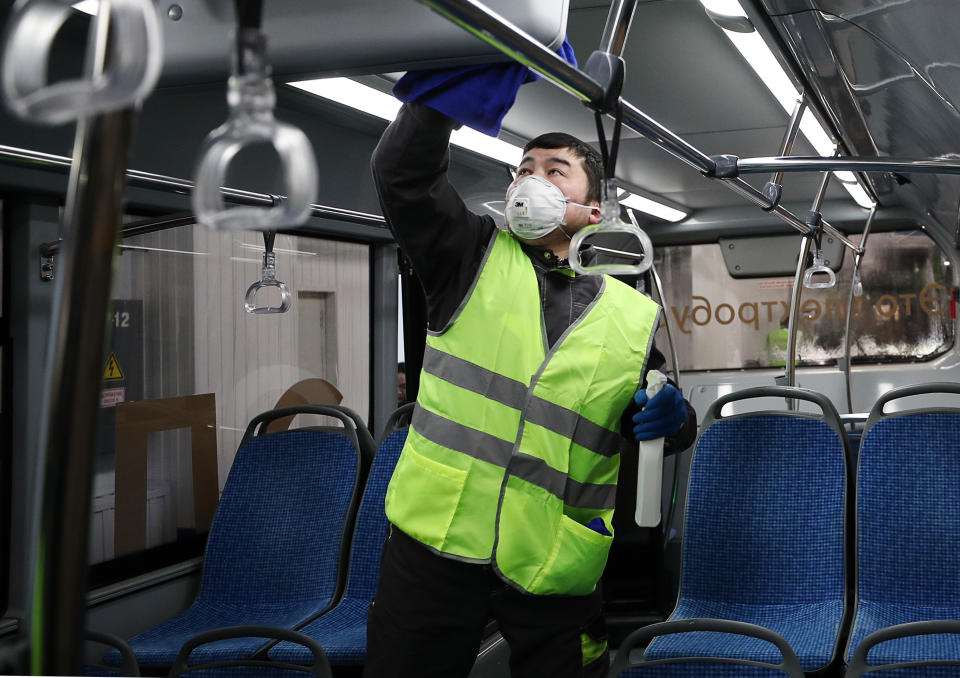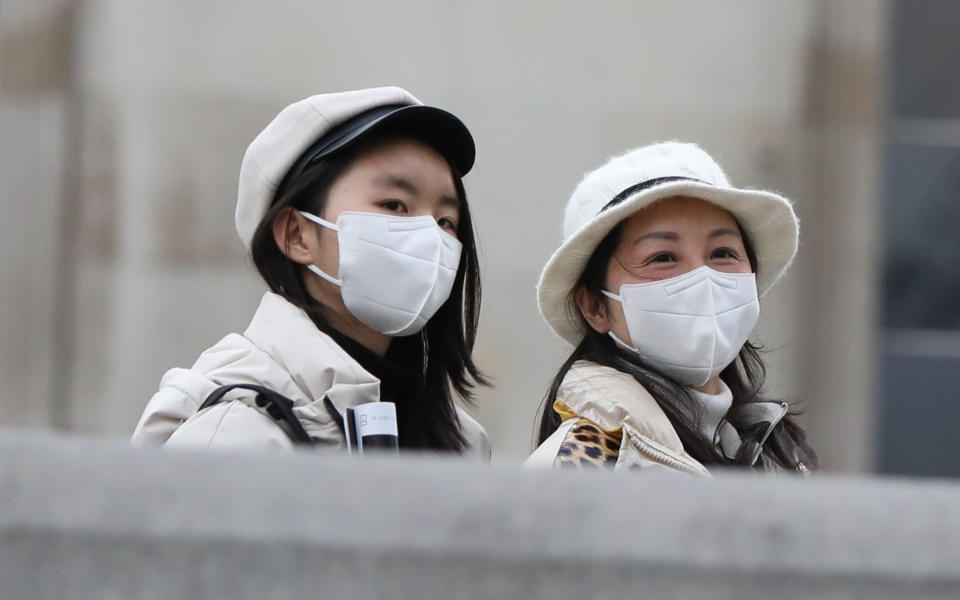Could the coronavirus spread on public transport?
The coronavirus outbreak is making headlines all over the world, with the public eager to learn how to protect themselves from the mysterious pathogen.
Since emerging at a seafood and live animal market at the end of last year in the Chinese city of Wuhan, the Covid-19 strain has been confirmed thousands of miles away in more than 60 countries.
More than 91,300 cases had been identified by Tuesday, of which more than 80,000 were in mainland China, according to John Hopkins University data.
Read more: Should humans limit their contact with animals to prevent disease outbreaks?
While incidences appear to be plateauing in China, outbreaks have emerged elsewhere, with South Korea having more than 5,000 confirmed cases and over 30 deaths.
Globally the death toll has exceeded 3,000. Out of more than 13,900 tests, 51 have come back positive in the UK. One British man died after catching the infection aboard the “hotbed” Diamond Princess cruise ship.
The UK’s chief medical officers have raised the risk to the public from “low” to “moderate”.

Virtually unheard of just two months ago, Covid-19’s death rate is up for debate, leaving some questioning how cautious we need to be.
Sadiq Khan’s recent comment that Londoners have “no risk” of catching the infection when using public transport has therefore caught some by surprise.
Speaking on Good Morning Britain, the Mayor of London said: “There is no risk in using the Tube or buses or other forms of public transport.”
When questioned by host Piers Morgan, Khan added: “The advice is you’re not going to catch it if you’re washing your hands regularly”.
Jonathan Quick, past director of the World Health Organization, famously said: “Panic and complacency are the hallmarks of the world’s response to infectious diseases.”
Data suggests the coronavirus is mild in four out of five cases, with more than 48,000 patients having “recovered” so far.
Nevertheless, officials are urging the public to wash their hands regularly, maintain “social distancing” from suspected sufferers, and even avoid “spitting” when out and about.
Can you catch the coronavirus Covid-19 on public transport?
Scientists are rushing to uncover how infectious Covid-19 is, as well as how it spreads from person-to-person.
For now, authorities have confirmed the virus is transmitted via infected droplets expelled from a patient when they sneeze or cough.
Cough is a tell-tale symptom, along with fever and breathlessness.
It is unknown whether Covid-19 can survive on hard surfaces, such as those found on the underground or buses.
Read more: How could anti-bacterial hand sanitisers protect against the coronavirus?
While washing hands regularly is sound advice, it is not a “guarantee” to staying virus-free.
“If someone who is infectious sneezes or directly coughs on you, you’re at risk to catch [Covid-19]”, Professor Devi Sridhar from the University of Edinburgh told Yahoo UK.
She added, however, the chance of this occurring is “slim” given the relatively few number of cases in the UK.
“People need to think there is never ‘no risk’ to leaving your house,” said Professor Sridhar.
“Living life contains daily risks of all kinds but due to the benefit of meeting people, going to work or taking public transport, we accept those risks for the benefit we gain socially or economically”.
Read more: Could a patient become 'reinfected' with the coronavirus?
Although unclear, Professor Rowland Kao, also from the University of Edinburgh, said a “sensible interpretation” of Khan’s comments “would be to think about the fact that under current circumstances, the total number of infected people in the UK is likely to be low”.
“The chance of a random encounter with someone who is infected is very low even if we only know about a small proportion of infections”, he told Yahoo UK.
Professor Kao referenced how the UK has 51 confirmed cases out of a population of over 66 million.
“If numbers increase going forward, the risk will change and at some point it is possible it will change substantially,” he said.
“Under the current circumstance, the average Tube journey is unlikely to put you in direct close contact with an infected person.
“The reason why hand washing and protection from fomites [objects likely to carry infection] is perhaps more important is because those are opportunities for the virus to linger after the infected person has left.
“This is very different, however, from saying washing your hands keeps you safe on its own.
“Even a quick look at the Centers for Disease Control and Prevention website confirms aerosol transmission is a risk and hand washing isn’t going to protect you from that if you do find yourself in close proximity to an infected individual.”

What is the coronavirus Covid-19?
Covid-19 is one of seven strains of the coronavirus class that are known to infect humans.
Others include the common cold and severe acute respiratory syndrome (Sars), which killed 774 people during its 2004 outbreak.
In severe cases, pneumonia can come about when the infection causes the alveoli (air sacs) in the lungs to become inflamed and filled with fluid or pus.
The lungs then struggle to draw in air, resulting in reduced oxygen in the bloodstream.
“Without treatment the end is inevitable,” said the charity Médecins Sans Frontières.
“Deaths occurs because of asphyxiation.”
Covid-19 is thought to have started in bats before “jumping” into humans, possibly via snakes or pangolins.
There is no specific treatment, with care being “supportive” while a patient’s immune system works to fight off the infection.



